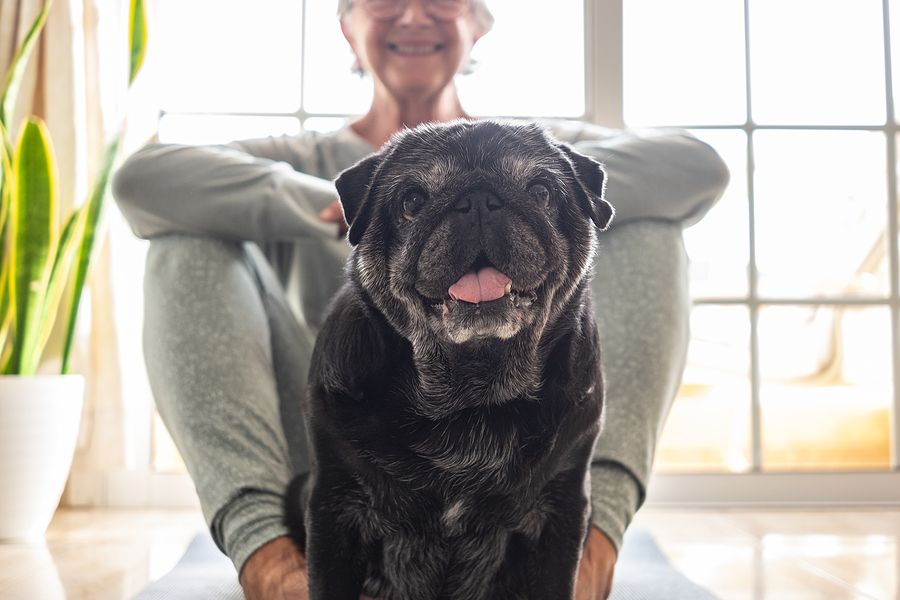It’s a hard thing to dwell on, but subconsciously you know your beloved dog will grow older. Unfortunately, however, your four-legged companion’s senior years arrive much faster than any pet owner would prefer. As your best friend ages, it’s important to begin thinking about your dog’s quality of life so that his golden years are as golden as possible. Here is some help on how you can do so:
Keep an Eye on Your Dog’s Health
Monitoring your older dog’s health and overall disposition is critical and will enable you to notice signs of trouble early on. Your vet can then prescribe a course of treatment during the early stages of whatever the problem is. When a health issue is addressed in a timely manner, more treatment options are often available, and your dog will have an increased chance of successful treatment and recovery.
Schedule Regular Vet Visits
Even if you think there is nothing wrong with your senior dog, your vet should look him over regularly. An animal doctor is trained to notice signs you might potentially miss, and preventive care is often the best way to ensure your senior dog’s quality of life. Moreover, your vet can advise you on the right amount of exercise, the best diet, and supplements that promote healthy aging. For example, supplements to improve mobility can help relieve arthritis pain and increase energy levels.
Get the Right Equipment
Just as older people may be helped by equipment such as walkers or wheelchairs, senior dogs can benefit from devices designed to meet their needs. For example:
- Dog stairs or ramps can help your dog get on your couch or bed with minimal effort. Note that if you have an aging dog with short legs that likes to jump, such as a corgi, a sudden hard impact on the legs can result in severe issues.
- Orthopedic or memory foam dog beds that provide lots of support to give your friend a good night’s rest.
- Dog harnesses that put less pressure on your dog’s neck during his daily walks.
Engage Your Dog in Age-Appropriate Exercise
Your senior dog may not be as active as he once was. However, this does not mean he has to stop enjoying regular walks and other fun activities. When walking your aging dog, it’s generally better to go for more frequent, shorter excursions at a slower pace. The right kind of exercise will help prevent muscle atrophy and provide mental stimulation.
Feed a Well-Balanced Diet
Your senior dog will benefit from a well-balanced diet formulated to meet his specific needs. Generally speaking, older dogs require fewer carbs and calories, more protein, and less sodium to maintain good health. A special veterinary diet may be needed to manage symptoms if your dog has been diagnosed with a specific condition.
Your Senior Dog’s Quality of Life: Final Thoughts
If you take care to improve your aging dog’s quality of life, you can look forward to a few more great years with your faithful companion. Your senior canine will continue to need your love and support to look after his needs and keep him as healthy and comfortable as possible.
- If you live in our area (Lexington, SC), Midlands Pet Care is here to help you when your dog’s golden years inevitably come to an end. We offer a full range of personalized services to honor your dog as a member of your family. Please get in touch with us for the compassion you will find at a difficult time.

